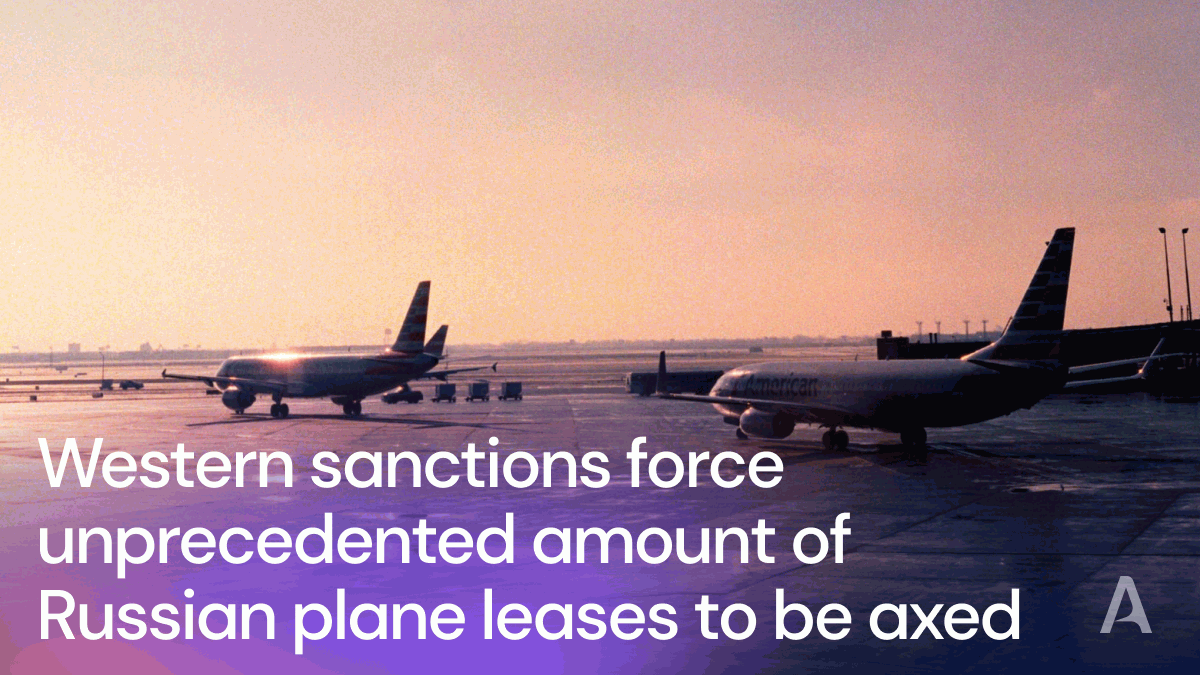At least hundreds of – both short- and long-term – plane leasing agreements made with air carriers registered in Russia are being terminated as early as only a few days following the country’s invasion of Ukraine.
As a result of sanctions from the Western countries, which have specified that aircraft leasing firms – along with other businesses in the sector – have a month to implement appropriate decisions, one market player after another is severing virtually all the ties with Russian airlines.
Russian airlines, on their part, canceled most of the international flights and completely halted all Western routes, except domestic flights. While such a move may seem inevitable after both Canada and US – along with most of the European countries – closed their airspace for planes registered in Russia or operating under Russian carriers, experts tend to point out that a complete withdrawal from international air traffic in this situation is driven by the fear that Western banks or foreign lessors may seize some planes.
According to the source, cited by Economic Times, there are almost 780 planes on a lease that are or recently were operated by Russian airlines, including 515 from foreign lessors. Some 425 of these are most at risk of being seized by an appropriate institution or taken back by their lessors, according to consultants Ascend by Cirium who give a more precise figure of 777 planes currently on a lease in Russia. That’s a huge number given the fact that currently, the country’s airlines operate a total of 980 passenger jets.
An estimated market value of all the planes currently leased to Russian airlines is around $10 billion. The world’s biggest aircraft leasing company, AerCap, on its part estimates that by net book value, 5% of its fleet was leased in Russia as of the beginning of the year. The company has the largest exposure to Russia and Ukraine, currently counting 152 of its planes there. AerCap is leasing its passenger jets to all the major Russian airlines, including Aeroflot, S7 Airlines, Rossiya, Azur Air, and Ural Airlines.
As for now, all the leasing companies involved are expecting nothing more than the highest likelihood of winding up deals and recovering their planes with no clear way of doing so as both the political climate and difficult operating conditions dealing with the country are shackled by sanctions make the situation unprecedentedly tough. Interestingly, as pointed out by Reuters, more than a decade ago, Russia has signed the treaty, known as the Cape Town Convention on International Interests in Mobile Equipment. Such an important treaty, which originally aimed for international standards regarding registration of contracts of sale, security interests, leases, and conditional sales contracts, underpinned the air finance industry by making it easier for lessors to recover jets when airlines cannot pay, in return for cheaper finance for the air carrier.
However, such a process usually isn’t implementable in the real world without the cooperation of courts, as the relevant authority is needed to enforce the rules. Therefore, a reaction from Russian courts would be needed to recover the planes. However, it is now obvious that their reaction is not easy to predict, given the current sanctions-related environment.






